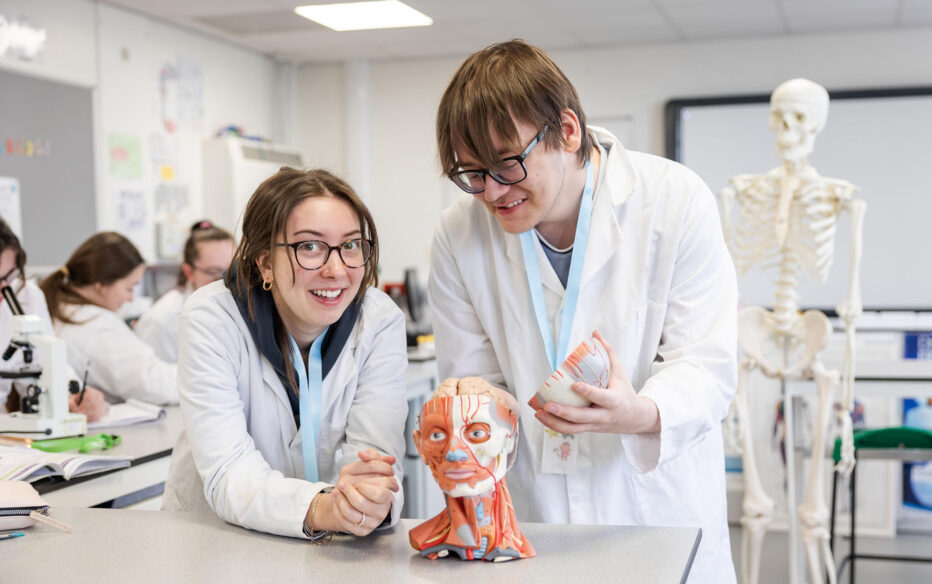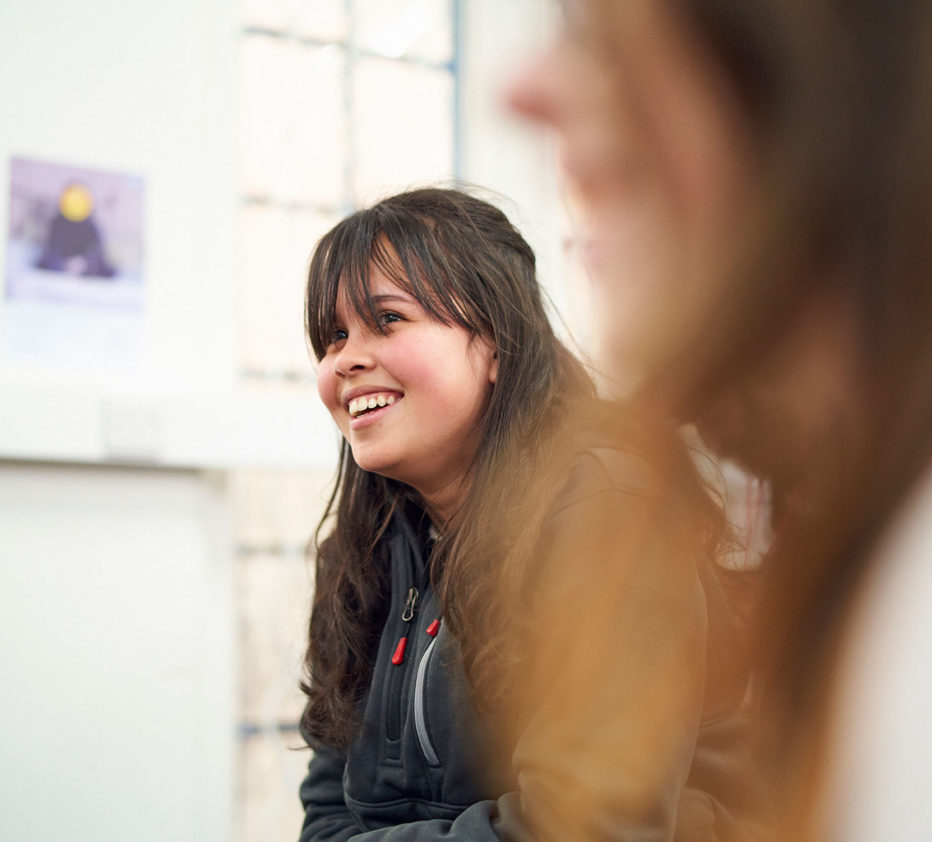

Delve into the intricate science of life and living organisms, from molecular mechanisms within cells to the complex interactions of ecosystems. This course offers a comprehensive exploration of biological principles, encompassing body systems, biochemistry, genetics, and biotechnology. Engage in hands-on practical experiments to enhance your investigative skills and deepen your understanding of the living world. This programme is designed to fuel your passion for biology and equip you with the knowledge and skills essential for a successful career in the biological sciences.
You will need 5 GCSE's at grades 5-9, including grade 6 in Maths, Science at grade 6, or Biology and another science at grade 6.
| Study level | Cost | Additional fees |
|---|---|---|
| 16-18 | Free | There are no costs to study this A-Level however there may be contributing costs associated with external visits. You will need to provide your own stationery and you may want to purchase a textbook. |
On this course you will learn through a combination of lectures, demonstrations, workshops, practical sessions, discussion activities and external visits.
Independent learning skills will be developed through research activities and extended study tasks.
You will develop your practical skills and carry out independent research linked to laboratory work. You will complete twelve assessed practical sessions throughout your two years of study which will contribute to your practical endorsement.
Maths and English are very important subjects and will equip you with key skills that will help you to achieve your best in your A-Level studies and progression towards your future career.
In order to study A-Level Biology, you will need to have achieved GCSE maths at a minimum of grade 6.
Our A Level programmes allow you to choose multiple subjects, enabling you to study 3–4 A Levels over two years or combine them with equivalent vocational qualifications, with each subject taught for 4 hours and 30 minutes per week across three separate lessons and your timetable determined by your chosen subjects (provided at the start of the academic year).
Although you are not required to be on campus when you do not have a timetabled lesson, we strongly recommend making effective use of our learning facilities and resources during these periods to stay on top of your work.
In year 12 you will study: Biological Molecules, Cells, Organisms and Exchange, Genetics, variation and relationships
In year 13 you will study: Energy transfers, Responses to change, Genetics, populations, evolution and ecosystems, Control of gene expression.
Completing this course opens a multitude of pathways for further study and careers. You can pursue university degrees in fields like medicine, nursing, dentistry, or veterinary science. Alternatively, consider specialisations in biochemistry, genetics, or environmental science. Career prospects are diverse, ranging from roles in healthcare and research to environmental conservation and biotechnology. This qualification not only fuels your passion for biology but also equips you with the skills and knowledge essential for success in various scientific and medical professions.
Find out everything you need to know about Sunderland College and our exciting range of courses!
Register for our next open event


Rated Outstanding in all areas by Ofsted
Ofsted, 2024

94% Overall pass rate for T Levels
2022-23

Top performing college group in the North East for student achievement
NARTS, 16-18 Students, 2024

We have International award winning Immersive Spaces at both Bede and City Campus